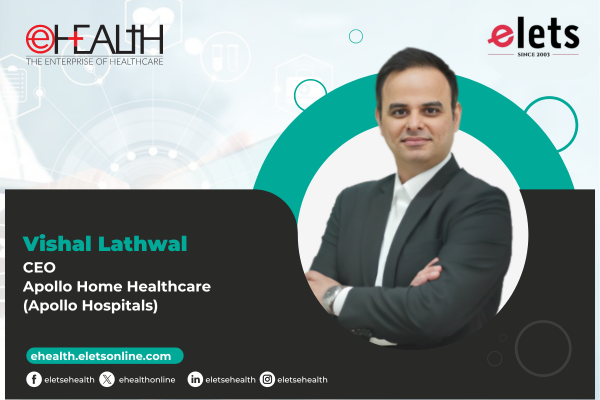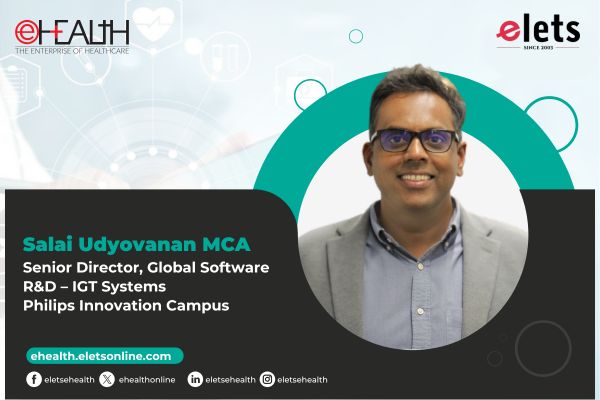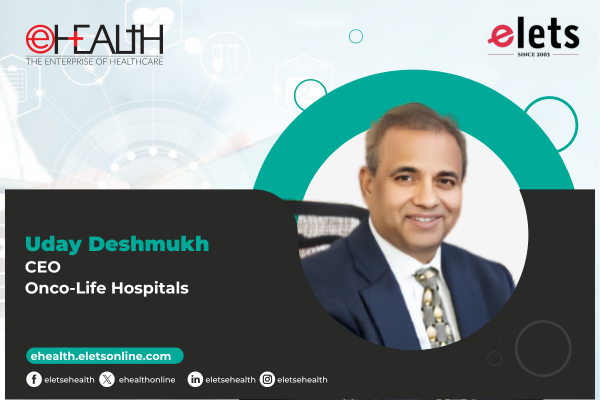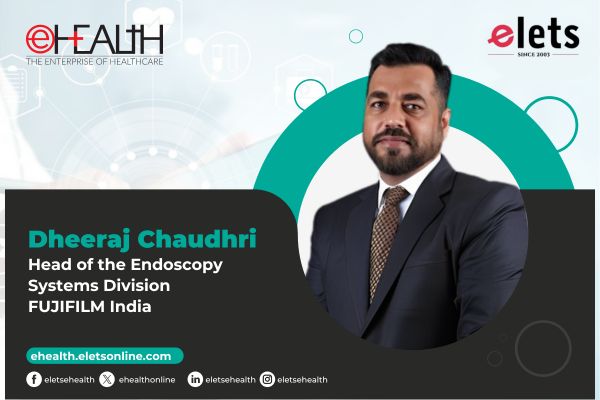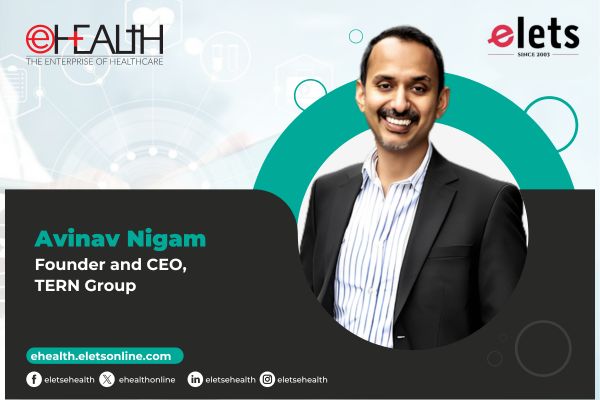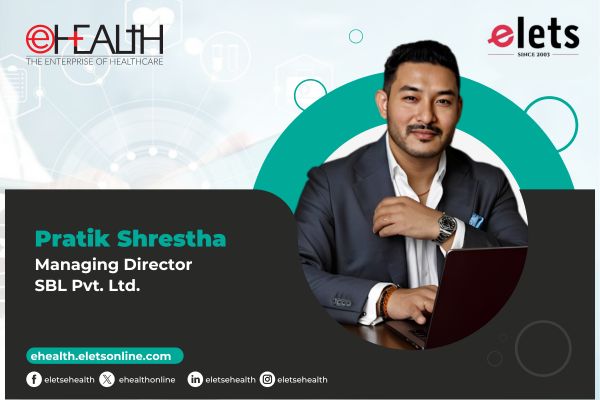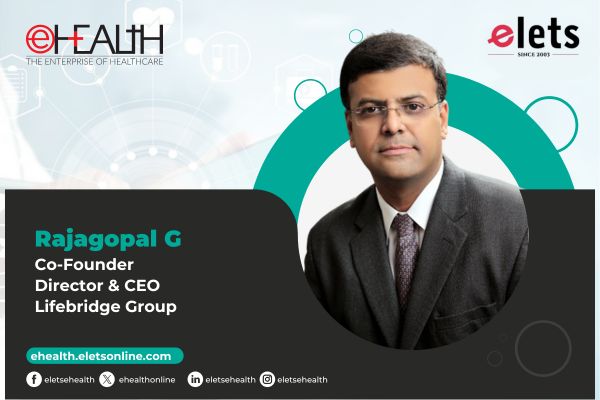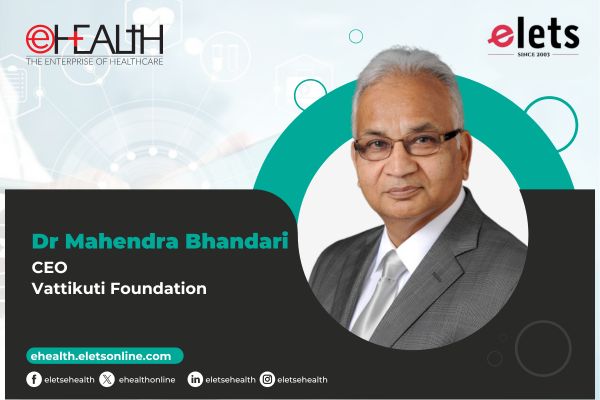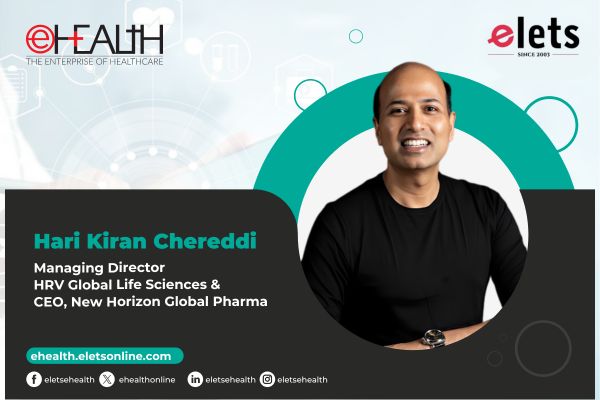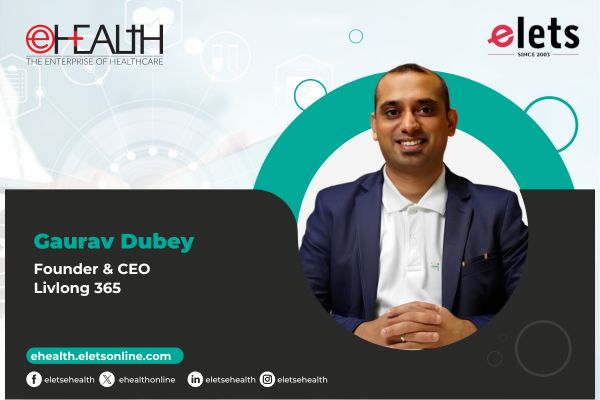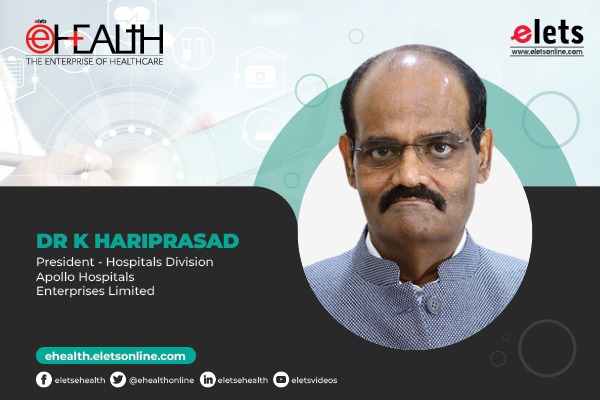
Healthcare in India is one of the fastest-growing sectors. Over the past few years, healthcare has seen a dramatic evolution. This year has been an explosive year in the health tech space, with more than 2000 startups entering the busy market. Delving deep into the discussions Dr K Hariprasad, President – Hospitals Division, Apollo Hospitals Enterprises Limited, had in-depth deliberations with Kaanchi Chawla of Elets News Network (ENN). Edited excerpts:
What position do you think Indian healthcare start-ups are in right now, and how are they doing?

Healthcare in India is one of the fastest-growing sectors. On the one hand, an increase in the lifestyle and stress-related disease burden and, on the other hand, a rise in people’s income, health awareness, and access to insurance. How can Indian healthcare start-ups be left behind in this era of Industry 4.0? India has always been the front-runner in the start-up space across all sectors, and healthcare is no exception. With over 8000 start-ups in the Indian health tech space, valued at $2 billion and growing at almost 40 per cent, we are at the centre of this revolution and known for innovation with affordability.

Over the past few years, healthcare has seen a dramatic evolution. New developments and trends in the healthcare sector are being developed by start-ups in that sector. Do you believe the healthcare services offered by start-ups to patients are of high quality?

Quality needs time. Iteration is the key word. We see every app becoming better over time, and I think that is what is required to succeed a certain sense of persistence and a quest for excellence. In this ocean of start-ups, there are many, who have emerged as the coveted unicorns, and I feel they have set very high-quality standards in their respective fields. The Indian market operates on volume and reachability, and our homegrown start-ups have imbibed this mantra very well.

Do you believe Artificial Intelligence is making a sufficient contribution to the expansion of start-up healthcare companies in India?
Artificial Intelligence and Machine Learning has been the core for most of the tech start-ups. Though not on par with the west yet, we have thriving R&D around AI, driven by our top-tier universities. Also, most venture capital funding is now focused on AI-driven projects in e-commerce, banking, and healthcare.
A phenomenal improvement in R&D funding, patent laws, and infrastructure has provided a strong foundation for harnessing the power of AI. India ranks eighth, ahead of Russia and France, in the list of countries with AI patents.
Thanks to 5G and the ubiquitous internet, advanced technologies such as edge computing, robotics, and IoTs have become toys to reach out faster and farther. Remote patient monitoring, improved image processing, and faster data processing have become the major drivers in the healthcare sector, thanks to AI.
Hospitals and doctors may streamline operations, engage patients, streamline procurement procedures, and more with the help of digital care ecosystems provided by health tech start-ups. What are your thoughts on it?
Hospital Information Systems are not what they were ten years ago. It has evolved into a much more robust, data-driven environment with the capability to capture, store, analyse and use every transaction. AI & ML have found immense use in optimising hospital operations. We have an in-house Digital Transformation cell at Apollo to identify opportunities and explore out-of-the-box solutions.
We are in an era where everything is driven by data. Business analytics has found a very strong footing in healthcare, and we can see how start-ups have tried to be the bridge between all the stakeholders in the healthcare ecosystem.
Best clinical outcomes, optimised operations, and service excellence are our goals. We have ensured we have enough tech support to ensure we are doing the best for our patients.
What opportunities and threats do you think Indian start-ups in the healthcare industry face?
Opportunities:
- Electronic Medical Records
- IoTs – Remote sensing devices
- AI & ML based preventive medicine & fitness
- Logistics management
- Genomics
Challenges:
- Slow growth – Most start-ups don’t survive the first year. The key has to be excellence driven by persistence
- Building credibility – Health has always been a very sensitive area and establishing credibility requires excellence
- Lack of SMEs and a well aligned staf
- Capital-intensive and high technological upgradation cost
- Data security and privacy – lack of safety compliances & protocols
How did this year go for Indian healthcare start-ups? What are their expectations for the future and where do they envision themselves as 2023 draws closer?
This year has been an explosive year in the health tech space, with more than 2000 start-ups entering the busy market. An increase in government funding and a renewed interest in health tech among venture capitalists have catapulted the growth potential of these start-ups.
All eyes would be on AI & ML to drive this growth and solve some real-world problems faced by you and me in healthcare. The sector is expected to almost triple by the end of 2023 and reaches a valuation of $5 billion. Successful start-ups are now going public and can earn high valuations in the long run.
What do you think about the current state and prospects for your organization in the digitally driven healthcare ecosystem?
We, at Apollo, understood very early that, IT is the only enabler for the future, and digital transformation was born. We have a fantastic home-grown patient medical record and hospital management system that has been evolving very rigorously over the last few years.
Analytics has contributed a lot towards business decision-making and achieving service excellence. A very robust IT support system has been the backbone for running operations across the length and breadth of India in varied states and populations. With such a vast repository of patient data, we hope to use AI and ML to do our bit in the health tech space.
All said and done, in India, we still run short of doctors and other health care professionals. The only way to bridge this gap is by using technology to reach farther and deeper. We plan to equip our telemedicine wing with the best tech support and help in this endeavour
Be a part of Elets Collaborative Initiatives. Join Us for Upcoming Events and explore business opportunities. Like us on Facebook , connect with us on LinkedIn and follow us on Twitter , Instagram.
"Exciting news! Elets technomedia is now on WhatsApp Channels Subscribe today by clicking the link and stay updated with the latest insights!" Click here!






